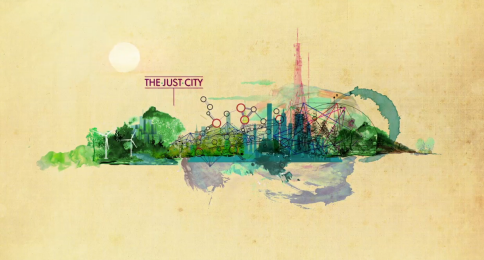“The city is where we humans create culture.”
So said Joan Clos i Matheu, executive director of UN-HABITAT, at an all-day Ford Foundation conference on “The Just City” yesterday.
The room was packed with people who love cities and passionately believe in them. But the very theme of the day was an acknowledgement that the cities we live in today — as vibrant and dynamic and creative as they may be — fail us in many ways.
Yes, they are the places where we create culture. But sometimes, that culture is exclusive, oppressive, and destructive, both to the environment and to the human spirit. Cities can be terribly unjust.
At several panels over the course of the day, some very smart people grappled with how to change that reality. Here are some of the ideas that emerged, and some of the voices that stood out most clearly for me.
In the developing world especially, cities are often seen as a national liability rather than an asset, and are thus neglected. Economic arguments can begin to change that.
UN-HABITAT’s Clos: “I am trying to find ways to convince leaders that they should care about cities. In the developing world, cities are seen as a problem — a lot of poor people, annoying people, hungry people. I have finally decided to start talking about money, because that is language they can understand. Developing nations are sitting in a mound of money and they don’t see it. There’s a blindness to the value.”
Without leaders committed to social equity, the fabric of the city will suffer.
Atlanta Mayor Kasim Reed: “If you don’t have equality as part of your core, you’re going to see that inequality in your streets and schools.”
Change expectations. People in cities deserve better than they are getting.
Daniel T. Kildee of the Center for Community Progress: “There’s acceptance of things that are not acceptable in other communities. It can’t be a “just city” if, where we have concentrations of poverty, an empty house, or school, or commercial property can sit there unused for 10, 15 years.”
Urban blight is not a natural consequence of “free market” forces. The rules of the development game — including land-use regulations and mortgage tax breaks — have stacked the deck against cities for generations.
Kildee: “To say that [urban blight] is the result of the market is like saying the outcome of a baseball game is the result of the market.”
If we are to emerge from the economic crisis we’re in, the new national economy must be driven by metropolitan regions, and it must be radically transformed.
Bruce Katz of the Brookings Institution: “This is a very disruptive period. If cities and metros lead the national economy, what kind of economy do we want to create? It can’t be the real estate and consumption economy of the past. ‘Starbucks and stadia’ is not sustainable. A new economy has to be driven by exports; powered by low carbon, because this is a market revolution; and fueled by innovation, not just in ideas but in manufacturing, because that is where we get good jobs.”
Solutions are going to come from the bottom up, not the top down, and the federal government needs to respect local initiatives.
Housing and Urban Development Secretary Shaun Donovan: “If you take a more humble view at the federal level, we can’t do it alone, has to be more localized … We have to use the capital in institutions that exist at the local level. We have to go where there is local leadership.”
Progressives who care about the nation’s cities need to take back the narrative momentum from the right and argue for a new kind of American dream.
Van Jones of the Center for American Progress: “There are those that would like to repeal the 20th century. But we’d like to maintain the gains of our grandparents … America is a country that had a founding reality that even its founders lamented was unequal. But it also had a founding dream of equality. We are an imperfect people who struggle to bring that dream of equality to reality.”



